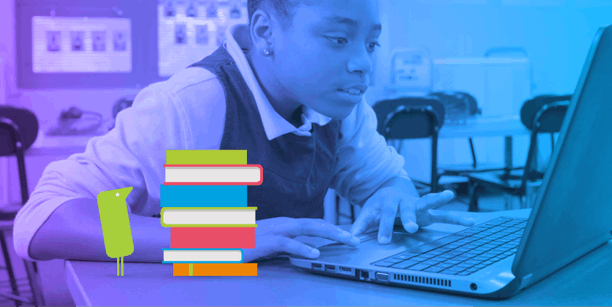Developing literacy skills in today's digital world
Literacy skills are more important than ever. While careers, job skills and societal norms may be in flux, literacy is the constant that can pave the way to employment, inclusion, and success.
Happy International Literacy Day!

International Literacy Day, which takes place every year on September 8th, was founded by the United Nations Educational, Scientific, and Cultural Organization (UNESCO) to “remind the public of the importance of literacy as a matter of dignity and human rights, and to advance the literacy agenda towards a more literate and sustainable society.” This year, the theme of International Literacy Day is “Literacy and skills development.”
At one time, a literate person was one who was able to sign a document. Today, the definition includes a variety of functions in different literacy contexts, both print and digital. Changes to society have determined what is deemed important - and so influence what is being taught in our educational institutions.
At Texthelp, we believe there’s a whole world of potential avid readers and fluent writers, waiting to emerge with the assistance of the right tools and encouragement. On International Literacy Day, we are reminded how important it is to give those individuals the tools they need to succeed. This is because, despite great advances in international literacy within today's world, the statistics as recently reported by Audry Azoulay, Director General of UNESCO, are still quite staggering.
In her message for International Literacy Day 2018, Azoulay reports that around 617 million children and adolescents worldwide are still not achieving the minimum skills in literacy and numeracy, and that 750 million young people and adults still cannot read and write. The effects of low literacy have far-reaching consequences: ”These seriously debilitating shortcomings lead to a de facto exclusion from society and perpetuate a spiral of social inequalities and gender inequalities.”
More specifically, in line with this year’s Literacy and Skills Development theme, low literacy skills also affect Technical and Vocational Education and Training (TVET) learners. Recent studies show that a lack of literacy skills impedes students from fully benefiting from TVET learning programs, leading to higher unemployment rates.
This problem is only amplified by how quickly society is evolving. Digital technology is transforming the workforce, making it even more challenging to prepare young people for careers that are constantly changing or may not even exist yet.
That’s why literacy skills are even more important than ever. While careers, job skills and societal norms may be in flux, literacy is the constant that can pave the way to employment, inclusion, and success.
Although arguably technology has contributed to some of the challenges we face, it can also be part of the solution. It breaks down barriers to literacy and encourages lifelong learning for all. It offers personalized supports for everyone at all stages of their lives - including those with learning disabilities or lower literacy levels.
High school students from Mary McDowell Friends School, a New York City school for students with learning disabilities, use technology to help them meet regular diploma requirements. With technology, these students are able to graduate, attend higher education institutions, and enjoy successful academic careers that prepare them for the workforce.
Consider legal professional, Fui Amevor - a law graduate and dyslexic, overcomes reading and writing challenges daily with the use of technology. As a constant support aid and lifelong learning tool, technology helps further Fui’s career - a legal career that would not have been an obvious choice when faced with literacy challenges growing up.
The possibilities with literacy and technology are endless. And we’re only at the beginning.
With the right digital tools, individuals can gain the literacy skills they need to succeed. Because literacy is the key to advancement. As we say here at Texthelp, from literacy to life.
